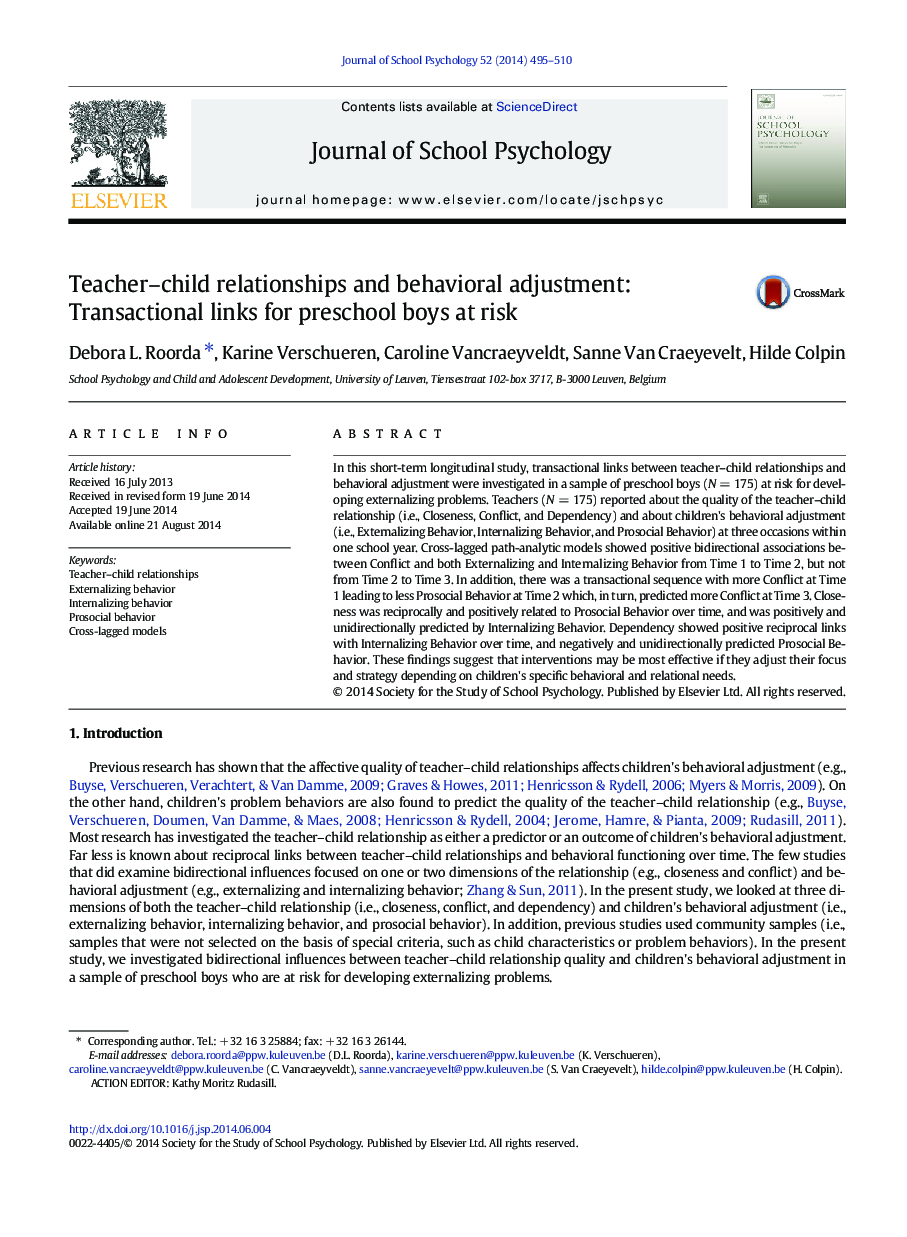| Article ID | Journal | Published Year | Pages | File Type |
|---|---|---|---|---|
| 363547 | Journal of School Psychology | 2014 | 16 Pages |
In this short-term longitudinal study, transactional links between teacher–child relationships and behavioral adjustment were investigated in a sample of preschool boys (N = 175) at risk for developing externalizing problems. Teachers (N = 175) reported about the quality of the teacher–child relationship (i.e., Closeness, Conflict, and Dependency) and about children's behavioral adjustment (i.e., Externalizing Behavior, Internalizing Behavior, and Prosocial Behavior) at three occasions within one school year. Cross-lagged path-analytic models showed positive bidirectional associations between Conflict and both Externalizing and Internalizing Behavior from Time 1 to Time 2, but not from Time 2 to Time 3. In addition, there was a transactional sequence with more Conflict at Time 1 leading to less Prosocial Behavior at Time 2 which, in turn, predicted more Conflict at Time 3. Closeness was reciprocally and positively related to Prosocial Behavior over time, and was positively and unidirectionally predicted by Internalizing Behavior. Dependency showed positive reciprocal links with Internalizing Behavior over time, and negatively and unidirectionally predicted Prosocial Behavior. These findings suggest that interventions may be most effective if they adjust their focus and strategy depending on children's specific behavioral and relational needs.
